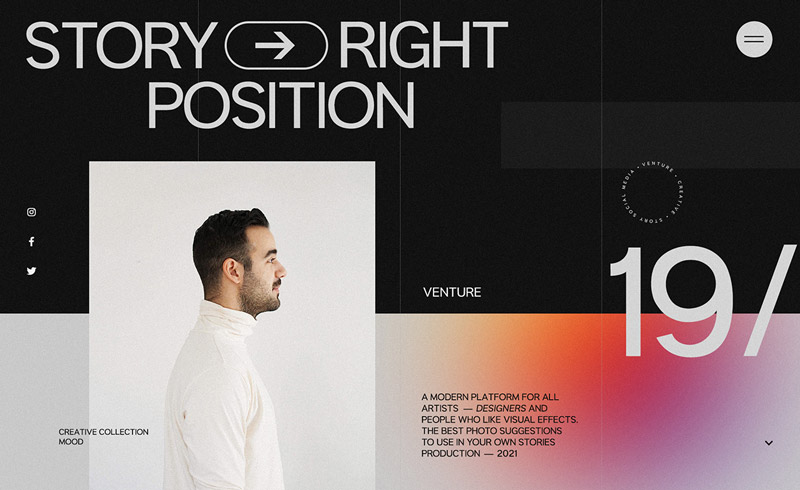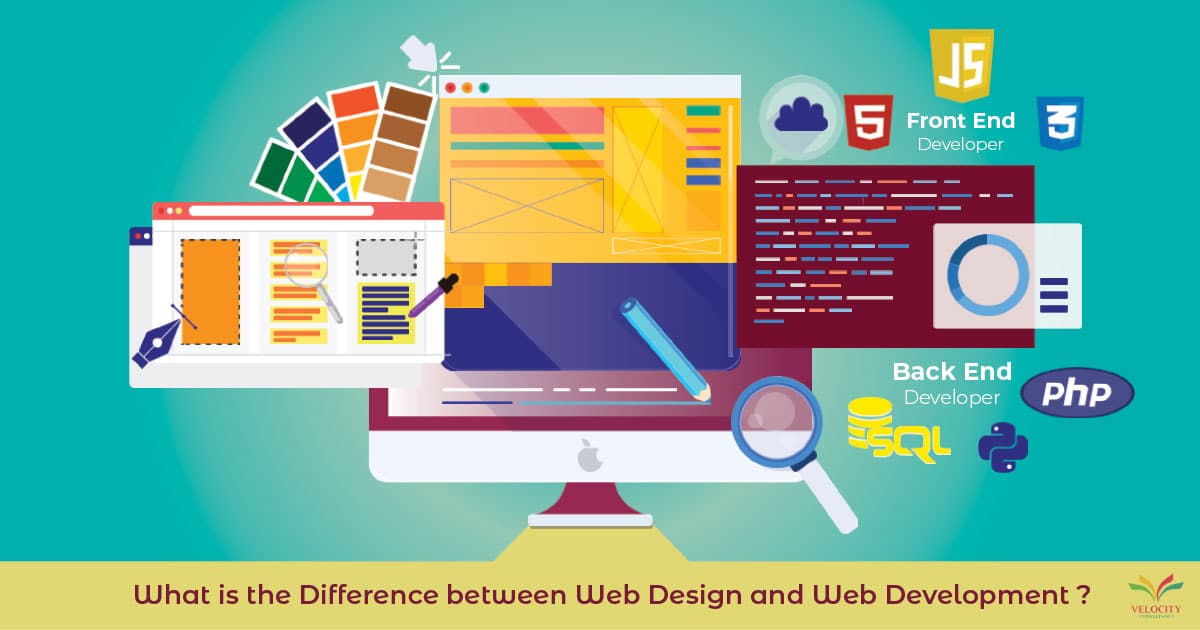Website Design London Ontario Built with Popular Platforms and Plugins
Website Design London Ontario Built with Popular Platforms and Plugins
Blog Article
Understanding the Crucial Element That Compose Efficient Web Layout Strategies
When it involves web style, recognizing the vital elements can make all the difference in individual involvement and fulfillment. You need to contemplate elements like intuitive navigating and receptive style to create a seamless experience. Yet that's simply the beginning. Each element plays a crucial duty in guiding individuals with your material and influencing their actions. Interested regarding what actually drives these strategies? Let's discover deeper into these vital components.
The Importance of Individual Experience (UX) in Web Layout
Customer experience (UX) is the backbone of efficient web style, shaping how site visitors engage with your site. When you focus on UX, you produce a space where individuals feel comfy, engaged, and valued. A well-designed UX assurances that your audience can conveniently browse your material, discover information rapidly, and enjoy their total experience.You must consider your customers' demands and choices, as this understanding straight influences their complete satisfaction. By concentrating on aspects like load times, mobile responsiveness, and accessibility, you boost their experience considerably.Moreover, a positive UX cultivates trust fund and motivates repeat sees, which can result in greater conversion rates. Remember, users will not be reluctant to leave your website for a competitor if they encounter frustration or confusion. Inevitably, investing in UX isn't nearly aesthetics; it's about developing a user-centric style that keeps site visitors coming back for even more.
Crafting Instinctive Navigation for Seamless Surfing
When making a site, crafting intuitive navigation is necessary for ensuring visitors can locate what they need without frustration. Start by arranging your material realistically; group relevant web pages together to aid users forecast where to locate information. Usage clear, succinct labels for navigating web links, preventing jargon that may confuse your audience.Consider implementing a hierarchical structure with a primary food selection and dropdowns for subcategories, making it simple to drill down into details subjects. Include a search bar to empower customers to find content directly, specifically on bigger sites.Don' t forget mobile individuals; ascertain your navigation remains easily accessible on smaller sized screens. Keep it basic and constant throughout all pages to strengthen knowledge. By concentrating on these elements, you'll develop a smooth surfing experience that maintains visitors engaged and urges them to discover even more of what you have to use.
Responsive Design: Adapting to Various Tools
As the selection of devices people make use of to access the internet proceeds to expand, ensuring your site is receptive has actually never been extra important. A responsive design indicates your website adapts perfectly to various screen dimensions, from smartphones to desktops, offering a superior viewing experience. This flexibility not only boosts customer fulfillment yet also increases your site's efficiency in online search engine rankings.To create a responsive layout, use versatile grids and layouts that automatically get used to the screen's measurements. Apply CSS media questions to personalize styles based upon device features. Prioritize crucial material, ensuring it's conveniently available on smaller sized screens without overwhelming customers.
The Duty of Visual Pecking Order in Effective Layouts
Aesthetic pecking order is crucial for leading your target market's attention where it matters most. By properly utilizing prime focus, comparison, typography, and color, you can produce a format that interacts your message plainly. Let's discover just how these components collaborate to improve your layout.
Relevance of Focal Points
Centerpieces are crucial in website design, directing individuals' attention to one of the most essential elements on a page. By purposefully positioning these prime focus, you create a clear visual hierarchy that improves user experience. Consider what you desire your site visitors to notice initially-- whether it's a call-to-action switch, a vital image, or significant information.Using dimension, placement, and comparison, you can draw attention to these centerpieces, making them stand out. Remember, the a lot more noticeable the focal point, the more probable customers are to involve with it. A properly designed design not only captures rate of interest but also leads individuals with your material flawlessly, ensuring they absorb the information that matters most. Prioritizing prime focus is vital for efficient interaction on your site.
Color and Contrast Use
Effective use shade and comparison can substantially affect how users perceive your internet site's material. By selecting a color scheme that lines up with your brand, you create an emotional connection with visitors. High contrast between message and background improves readability, guaranteeing your message attracts attention. Usage contrasting shades to highlight essential components, like call-to-action buttons, directing individuals' focus where it matters most.Additionally, equilibrium is essential; too much comparison can be frustrating, while as well little may provide your content undetectable. Applying a visual pecking order with color helps individuals browse your website intuitively. You desire them to conveniently distinguish between headings, subheadings, and body message, which improves their general experience. Eventually, effective shade and comparison usage keeps individuals involved and encourages them to check out further.
Typography's Effect on Style
While it's simple to neglect, typography plays a crucial duty fit your web site's style and general user experience. It establishes an aesthetic power structure that guides visitors via your web content. By selecting the best fonts, dimensions, and designs, you can highlight essential information and develop a seamless flow. For instance, making use of bigger headings assists users promptly recognize sections, while smaller sized body text provides thorough insights without frustrating them. Constant typography not only boosts readability but additionally enhances brand identity. Remember to stabilize decorative typefaces with clarity to keep professionalism. Inevitably, efficient typography warranties your message resonates, making your internet site a lot more appealing and user-friendly. Prioritizing this component can substantially boost your layout technique and impact.
Using Compelling Web Content to Involve Site Visitors
Just how can you maintain your site visitors engaged and returning for more? The response depends on compelling material. Beginning by recognizing your audience and what interests them. Produce informative articles, enthralling tales, or entertaining video clips that reverberate with their demands. Utilize a conversational tone to make your web content relatable; it ought to feel like a friendly chat rather than a lecture.Incorporate visuals like video clips, infographics, and photos to separate text and keep points vibrant. Don't fail to remember to invite communication-- ask questions, motivate remarks, or include polls to spark discussions.Also, focus on quality and brevity. Make certain your primary points beam through without unneeded jargon or fluff. Remember, top quality over amount issues; it's better to have fewer, high-impact items than a slew of sub-par ones. Ultimately, when your web content's appealing, site visitors will not only linger however likewise share it with others.
The Influence of Shade Psychology on User Communication
Believe concerning just how they can affect individual feelings and perceptions when you pick shades for your site. Shades can boost your brand identity while also making certain ease of access with comparison. Comprehending these components can substantially enhance user communication and involvement.
Color Meanings and Emotions
Understanding shade psychology is vital for creating an engaging web layout, as the colors you pick can stimulate details feelings and influence user communications. Various colors can activate different feelings; for instance, blue frequently conveys trust and peace, while red can evoke excitement or necessity. When you include these colors attentively, you direct your users towards wanted activities. Yellow can inspire optimism and happiness, making it reliable for contact us to activity, while eco-friendly advertises leisure and a connection to nature. By aligning your color scheme with the emotions you want to evoke, you boost customer experience. Consider your target market and the message you intend to share, guaranteeing your shade selections resonate and create a lasting impact.
Brand Identity Through Color Styles

Shade Comparison and Access
While picking a color scheme is critical, guaranteeing ample contrast is vital for availability. You want your website to be aesthetically appealing, however it needs to also satisfy all users, including those with visual problems. High contrast in between message and background boosts readability, making it easier for everybody to engage with your content.Think concerning shade psychology, as well. Different colors evoke different emotions and reactions. By understanding just how colors influence customer communication, you can lead customers toward desired activities. Using cozy shades can create urgency, while great shades could instill peace. Always test your color combinations to confirm they satisfy access standards, aiding you create an inclusive experience that resonates with all visitors.
Maximizing Lots Speed for Boosted Efficiency
Considering that users expect internet sites to fill promptly, enhancing tons rate is crucial for boosting efficiency and user fulfillment. A slow-loading site can irritate visitors and drive them away, so you require to do something about it. Beginning by compressing photos and making use of modern formats like WebP. This can greatly lower file sizes without giving up quality.Next, reduce HTTP requests by combining CSS and JavaScript files. Less requests imply quicker load times (website design london Ontario). Executing careless filling for videos and images assurances that content lots just when customers scroll down, improving initial lots speed.Additionally, utilize web browser caching to keep often accessed sources, allowing repeat site visitors to appreciate faster packing times. Lastly, select a reliable holding supplier. Their efficiency directly affects your site's speed
Frequently Asked Inquiries
How Can I Determine the Performance of My Website Design Approach?
To measure your internet design method's effectiveness, track user engagement metrics like bounce prices, conversion prices, and average session duration. Use tools like Google Analytics to gather insights and change your approach based on the data.
What Are Common Mistakes to Stay Clear Of in Internet Style?
In web design, stay clear of cluttered designs, irregular font styles, and slow-moving packing times (website design london Ontario). Do not disregard mobile responsiveness or overlook user testing. Prioritize ease of access and assurance clear navigation to enhance customer experience and keep visitors involved
Exactly how Often Should I Update My Web Site Design?
You should upgrade your web site design every 1 to 2 years, or whenever considerable adjustments happen in your brand or industry. Routine updates keep your site fresh, enhance user experience, and improve performance.

What Tools Can Assist Analyze User Behavior on My Site?
To examine individual behavior on your site, you can utilize tools like Google Analytics, Hotjar, or Crazy Egg. They'll provide insights right into customer communications, aiding you make notified choices for enhancing your site's efficiency.

How Do I Select the Right Font for My Website?
Selecting the ideal font for your internet site entails taking into consideration readability, design, and positioning with your brand name. Experiment with various fonts, verify they're understandable on different devices, and maintain uniformity throughout your web pages for a cohesive appearance. Incorporate a search bar to encourage individuals to discover material read more directly, especially on larger sites.Don' t forget concerning mobile customers; establish your navigating continues to be obtainable on smaller sized screens. Reliable usage of color and contrast can significantly affect just how customers regard your site's content (website design london Ontario). Understanding color psychology is vital for creating an engaging web style, as the shades you pick can evoke particular feelings and influence user communications. By comprehending exactly how shades effect individual communication, you can lead individuals toward desired actions. Since customers expect websites to fill quickly, optimizing tons speed is vital for boosting performance and individual fulfillment
Report this page